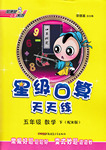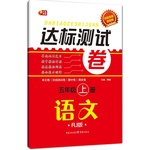题目内容
【题目】假定英语课上老师要求同桌之间交换修改作女文,请你修改你同桌写的以下作文。文中共有10处语言错误,每句中最多有两处。每处错误仅涉及一个单词的增加、删除或修改。
增加:在缺词处加一个漏字符号(∧),并在其下面写出该加的词。
刪除:把多余的词用斜线(\)划掉。
修改:在错的词下划一横线。并在该词下面写出修改后的词。
注意:①每处错误及其修改均仅限一词:
②只允许修改10处,多者(从第11处起)不计分。
Last weekend, my classmate and I went on a camping trip near the river. It was not long distance, so we chose to get here by bike.
We started with early in the morning. On the way, we talked about that we saw around. It takes about half an hour to get to the place. On arriving, some girls sat down, had her breakfast and listened to the birds sings. Some admired the river while others drew pictures. My friends and I found a quietly place and went fishing. To our surprise, we got much fishes.
Time passed so quickly and we had to say goodbye. I enjoyed the pleasant or exciting trip.
【答案】①classmate→classmates
②1ong前加a
③去掉with
④that→what
⑤takes→took
⑥her—their
⑦sings→singing
⑧quietly→quiet
⑨much→many
⑩or→and
【解析】本文讲述了作者和同学去郊外的一次旅行。
①错误类型:名词单复数误用。根据第二段中的“some girls...”可知,作者是与一些同学一起去野营,所以此处应用classmate的复数形式。
②错误类型:冠词漏用。distance在此为可数名词,表示一段距离,所以在long前加a。
③错误类型:介词多用。start是不及物动词,意为“出发”,后面不接宾语,故with多余。
④错误类型:从句连接词误用。分析句子结构可知, talked about后是一个宾语从句,且从句中缺少宾语,所以用what引导该宾语从句;而that引导宾语从句时,在句中不充当任何成分,且没有意义。故把that改为what。
⑤错误类型:动词时态误用。根据时间状语last weekend可知,本文讲述过去发生的事情,该句应用一般过去时,故将takes改为took。
⑥错误类型:代词误用。本句主语为some girls,所以物主代词要用their。
⑦错误类型:非谓语动词误用。本句中已有谓语动词listened to,故此处应用非谓语动词形式,sing与其逻辑主语birds为主谓关系,故此处用现在分词在句中作宾语补足语,表示鸟正在唱歌。故将sings改为singing。
⑧错误类型:副词和形容词混用。此处修饰名词place,应用形容词,故将quietly改为quiet。
⑨错误类型:名词前修饰语用错。 fishes此处指鱼,不是鱼肉,是可数名词其前用many修饰。
⑩错误类型:连词误用。 pleasant与exciting之间为并列关系,故将or改为and。

 星级口算天天练系列答案
星级口算天天练系列答案 芒果教辅达标测试卷系列答案
芒果教辅达标测试卷系列答案【题目】请认真阅读下列短文,并根据所读内容在文章后表格中的空格里填入一个最恰当的单词。
注意:每个空格只填一个单词。
When was the last time you read a book or a magazine article? Do your everyday reading habits centre around updates on the Internet? In case you are one of countless individuals who don't make a habit of reading you may be passing up a great chance: Reading has a number of advantages and only a couple of advantages of reading are recorded below.
Everything you read fills your head with new bits of information and you never know when it might be useful to you. The more knowledge you have, the better-equipped you are to overcome any challenge you'll ever face. Besides, here's a bit of food for thought:Should you ever find yourself in a terrible situation, remember that although you might lose everything else — your job, your possessions, your money, even your health — knowledge can never be taken from you.
At the same time, the more you read, the more words you gain, and they'll surely make their way into your everyday vocabulary. Being able to express your ideas clearly in words is of great help and knowing that you can speak to higher-ranking people with self-confidence can be a great encouragement to your self-esteem(自尊). Reading books is also important for learning new languages, as non-native speakers gain exposure to words used in context, which will improve their own speaking and writing fluency.
When you read a book, you have to remember a lot of characters, their backgrounds, ambitions, history as well as the various plots(各种各样的情节) through every story. That's a fair bit to remember, but brains are wonderful things and can remember these things with ease. Amazingly enough, whenever you remember something new, new synapses(神经元的突触) are formed and existing ones are strengthened. How cool that is!
No matter how much stress you have at work, in your personal relationships, or countless other issues faced in daily life, it all just slips away when you lose yourself in a great story. A well-written novel can transport you to other fields while an interesting article will distract(使分心) you and keep you in the present moment, letting stress away and allowing you to relax.
You Should Read Every Day | |
Knowledge Accumulation (积累) | ◆ The more you read, the more adequately it 【1】you for different troubles in life. ◆ Knowledge is what will stay with you 【2】. |
【3】expansion | ◆ You can enlarge your vocabulary by reading, which may help you in your job and make you 【4】 when you talk with your leaders. ◆ Words in context will help a foreign language learner use the language 【5】. |
【6】 improvement | ◆ You will try to 【7】 in mind the contents of a book while reading and that is somewhat 【8】 for your brain. ◆ The more you try to remember, the【9】you will be at remembering. |
Stress reduction | ◆ An interesting writing will transfer your attention to its plot so that you feel 【10】 and forget about your worries. |